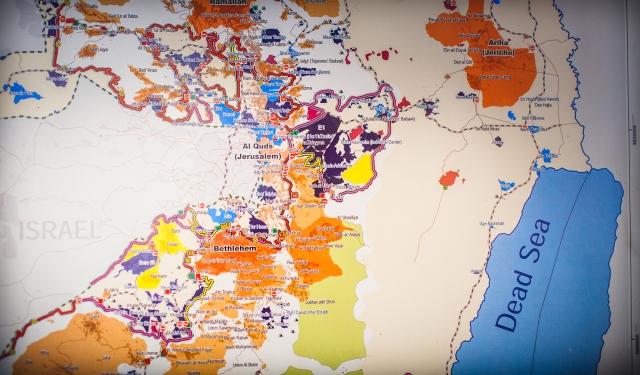
Appreciate your kind support.
To purchase fast and easy:
1. Go to amazon.com
2. Copy and paste ASIN:B06VVZKF9Y to amazon search bar
3. The copy of the book will appear and click the book and proceed.

Appreciate your kind support.
To purchase fast and easy:
1. Go to amazon.com
2. Copy and paste ASIN:B06VVZKF9Y to amazon search bar
3. The copy of the book will appear and click the book and proceed.
https://dailypost.wordpress.com/prompts/devastation/
My country, the Philippines is located in the so-called Circum-Pacific belt of fire and typhoon thus making it within the bulls-eye hit of catastrophic natural disasters and calamities, e.g. earthquakes as high a magnitude of more than 7, storms, floods, typhoons, and droughts. In a span of 3 days in 2013, the strongest and deadliest typhoon claimed 6,300 lives and left a staggering Php90B worth of damages.
In the deluge of misery amidst devastating losses, our people have been brought down to their knees and cried in overwhelming despair and hopelessness. The aftermath, e.g. harrowing pain of losing their loved ones, their properties, everything that they have worked for reduced to nothing, etc. But with their strong faith in God’s unfathomable mercy and grace, our people’s despair is only temporary.
Their resiliency never completely destroy their resolve to stand back up strong again, picking up the pieces from what is left behind. Nothing, oh nothing will ever break the indomitable spirit of our people. They are blessed with the gift to adapt and quickly recover from every crisis that they are confronted with. They strive to overcome the aftermath of cycles of natural calamities & disasters, even man-made conflicts such as war, facing these challenges one day at a time. They remain resilient in their ability to adjust to prevailing circumstances.
The world is in awe of the resiliency of our people, wondering how they can still manage to smile and laugh even when half of their bodies are plunged in devastating floods. Our people’s courage & heroic service to their fellow men, helping others in need when they themselves need so much assistance have touched the world, and have put a human face to being resilient amidst devastation.
Thank you for your blog; I read it at a time that I don’t want to write eBooks anymore, as my previously self-published ones (4) are languishing on Amazon! You wrote so eloquently, I could relate to every word you’ve written. It takes enormous courage to keep going when there are only disappointments. As Leigh Mitchell Hodges (1876-1954), journalist and poet says, “Failure is often that early morning hour of darkness which precedes the dawning of the day of success.” With your inspiration, I pray that my writing will become alive again, that my desire & enthusiasm will get fired up soonest, and that persistent thought of giving up will stop being “a sword of Damocles” hovering over my head!
You didn’t get the grant that would have affirmed your talent and promise. You don’t have a book to hold in your hands that would make all this flailing on the page real. You have been immersed in a deep well of inquiry and making, which is sometimes lonely business, and you want to share it for sense of connection it brings, but it’s not ready yet. Some things are deep underground in these dark days, in the process of becoming. Other things out in the world are wicked and wily. To add to the overall sense of doom, the words you love so much are being flung and twisted for the sake of harm, threat, and injury. The world says no.
I have been thinking about ambition, wanting, and rejection—and shame. And I noticed my brain doing something this morning that I had to talk myself out of, so…
View original post 646 more words
I was blessed to go on a pilgrimage to the Holy Land twice. This experience will remain to be the most unforgettable. To walk the steps of our Lord Jesus Christ is a blessing like no other.
On this day of celebration around the world, I reminded that a few years ago I had visited the supposed birthplace of Jesus, Bethlehem.
 Visit Palestine, a sign in a café in Jerusalem. The sign was a reprint of an old historical sign. Jerusalem, Israel, 2014.
Visit Palestine, a sign in a café in Jerusalem. The sign was a reprint of an old historical sign. Jerusalem, Israel, 2014.
 Kilometre Zero in Jerusalem, the heart of Christianity, Judaism and a Pilar of Islam. Jerusalem, Israel, 2014.
Kilometre Zero in Jerusalem, the heart of Christianity, Judaism and a Pilar of Islam. Jerusalem, Israel, 2014.
 Geopolitical map of the Occupied Territories of Palestine. Bethlehem is only 5 km away from Jerusalem, but the other side of the Separatation Wall in Palestinian Territories. Bethlehem, Palestine, 2014.
Geopolitical map of the Occupied Territories of Palestine. Bethlehem is only 5 km away from Jerusalem, but the other side of the Separatation Wall in Palestinian Territories. Bethlehem, Palestine, 2014.
 Legend of the Geopolitical map of the Occupied Territories of Palestine. Bethlehem, Palestine, 2014.
Legend of the Geopolitical map of the Occupied Territories of Palestine. Bethlehem, Palestine, 2014.
 Street situation in the old Jerusalem not far from the Western Wall. Jerusalem, Israel, 2014.
Street situation in the old Jerusalem not far from the Western Wall. Jerusalem, Israel, 2014.
 A prayer in the Church of the Holy Sepulchre in the center of the Old Jerusalem. Jerusalem, Israel, 2014.
A prayer in the Church of the Holy Sepulchre in the center of the Old Jerusalem. Jerusalem, Israel, 2014.
 Scene of devotion in the Church of the Holy Sepulchre…
Scene of devotion in the Church of the Holy Sepulchre…
View original post 444 more words
Millennials, Millennials, Millennials, who are they anyway? The term was first coined in 1987 by William Strauss and Neil Howe and has since stuck. It describes people born between 1982-2004. I love millennials and their need for immediacy. Their irreverent view of typical American culture. Their uncompromising right to assert their beliefs even when it is absolutely irrational. I find this generation fascinating. They are also affectionately known as Generation Y, Generation Me, Me Me Me Generation. They have also been called digital natives because they are the first generation who have not experienced life without the internet. I affectionately love to credit them with the surge of “the microwave philosophy”. For millennials everything must happen with immediacy and instant alacrity. In their minds the world revolves around them. This generation seems to glorify diversity of thought and philosophy as long as it fits with their personal philosophy. Some studies have shown a large percent of…
View original post 564 more words
https://dailypost.wordpress.com/prompts/vigor/
Upon retirement, we initially thought that our life has become a challenge. However, everything changed when we discovered digital technology, e.g. eBook writing, social media engagement to promote our eBooks, learn coding programs to create websites, application of multimedia widgets to enhance the looks of our eBooks, etc.).
It is a good life after all; so much to be grateful for.
Ours is a mix of writing & technology, a good combination. It is doing something together without so much fuss. I read & read, write & write; my husband takes care of the technology side. With digital technology, my husband is the relentless learner. He has developed a passion and goes deep into it in great abandon. Thank God he is a quick learner, with a career on the technical side before retirement. He gobbles up every free tutorial lesson offered by legitimate websites on web design and code programming. He created, builds-up, enhances and maintains our website ww.lolalynwrites.wordpress.com.
So far, we have already self-published 3 eBooks via amazon.com, with our 4th eBook soon to be released via Apple iBooks.
Our life is about pursuing the delights to learn new things, be open to change and embrace it. As retirees and empty nesters, we now have plenty of time to read books voraciously, either print books we have accumulated through the years (torn & tattered, dog-eared, unread or barely read or half-read, or even forgotten books). Whichever way, it’s good to revisit those books, enjoy them at our leisure, no deadlines, etc.
Those authors are awesome, putting their life’s experiences into a book for our reading pleasure. There is so much first-hand information and knowledge and so much to read if we want to keep up with, and be inspired by successful leaders. The best & brightest in every industry read a lot. Documented success stories of distinguished persons throughout old & modern history show that reading is a huge part of their success.
There’s power in the written word. I’m a blogger and an eBook writer because I discovered that I’ve always loved to write from childhood. I always have a way with words, which was my pillar of strength in the corporate world for many years.
Before the advent of computers and digital technology, books were the only way of storing information. They will always have a distinctive place.
The Internet has loads of interesting information, we just have to be selective and know how to filter out damaging, negative opinions and destructive information. Information which is wrong, unhelpful or misleading which can make us disheartened, lure us to depression, thwart us down with negative and restrictive mindset must be discarded, rejected and never to read it again.
As naturally as a cat meows, a dog barks, a singer sings, a painter paints, a crafter creates, a chef cooks, etc. It’s the same with us, a Senior couple reads, learns, writes and creates with love, vigor and large doses of laughter. We argue, even fight, stumble, fall and rise back up again in our learning process. Our mantra/byword is never, ever give up in our 60s, 70s, 80s, 90s, etc!
https://dailypost.wordpress.com/prompts/culture/
Cultural intelligence (CQ) is defined as “the capability to relate and work effectively in culturally diverse situations”. It is the ability to function effectively in different cultural situations. In today’s multi-cultural/globalized world, being ‘culturally intelligent’ is an essential skill for expatriates to develop and nurture while living and working in any other foreign land. It is more than being smart or intelligent, emotionally mature, and/or having good general social skills.
A ‘culturally intelligent’ person goes the extra mile in being culturally sensitive and aware to function in different traditional settings. This is the first step but it goes beyond that. Being culturally intelligent means a person is not only aware but more importantly, he/she can also effectively relate with people of diverse nationalities across different cultural backgrounds.
We can develop cultural intelligence by the following:
Developing your Cultural Intelligence (CQ) will surely make a difference to ensure that you are able to navigate smoothly across cultural boundaries when you live and work in a foreign country.
Oh, how I wish I could enhance my writings with great photographs, too! Another skill to learn but of course, doable and possible. Thank God you are in our community.
With hundreds of themes on WordPress.com, writers have many options to build a space for their work. Author Melissa Matthewson goes minimal, subtly transforming the Paulie theme to create a fresh writer’s website.
Melissa Matthewson lives on a small mountain homestead in the Applegate Valley of southwestern Oregon, spending her days writing, teaching, and running an organic market farm with her family. You’ll find her work across the web, from publications like Guernica and River Teeth to literary journals across WordPress, like Sweet and Bellingham Review.
With a growing archive of essays, Melissa needs an online home to promote her work. At the moment, she’s opted for a simple writer’s website, transforming the Paulie theme to fit her needs. Paulie works well out of the box for traditional blogging, as shown on its demo site. But instead of displaying her most recent posts on the homepage, Melissa has configured her site to…
View original post 272 more words
Hello there, lovely couple. Thank you for sharing your travel photo gallery of Norway. I know that Norway is one of the most stunning country on earth, blessed with incredibly spectacular natural beauty! My sister had lived in Norway for more than 20 years, she loves traveling all over the country and sharing photos in her FB. Keep on taking photos, to keep us glued to our screen, filled with gratitude for what God has blessed the earth.
There are 18 stretches of road in Norway so spectacular they have been designated National Tourist Routes. One of those is road 889 to Havøysund. Despite living in Finnmark until I moved south to start my university studies about 15 years ago I had not experienced this road yet – so this trip was long overdue.
 Road 889 winding through a rugged landscape
Road 889 winding through a rugged landscape
 Reindeer along the road
Reindeer along the road
The National Tourist Route to Havøysund runs from the costal sami village Kokelv to fishing village Havøysund, a total distance of 67 km. For most of the trip we drove with the Arctic Ocean on one side and a barren rocky landscape on the other.
 Slate rock formation along the road
Slate rock formation along the road
For most visitors coming to Finnmark the goal is North Cape at 71°North and many remain unaware of this detour through arctic coastal culture outside of the beaten path.
You get the feeling of being…
View original post 251 more words
https://dailypost.wordpress.com/photo-challenges/chaos/
Reverse culture shock came to me as a surprise after being an expatriate in another country for almost four decades! I left what I considered to be my home. My home country didn’t feel like home. I was confused, my life was in chaos, and I didn’t know how to live in my own country anymore!
Repatriation is not easy, it’s chaotic, and that’s the hard truth. I know it’s unlikely I’ll ever recreate the same type of life I’ve had in my host country. Over time, I have learned to embrace my continuous learning in how to enjoy my new life back home. It happened after I accepted it, believing in faith that life will be normal and better again.
Whether unexpected or planned or whatever the reasons, e.g. downsizing or termination, political uncertainties and instability caused by war or threats of war, medical or family need, reaching retirement age, expatriates ought to be realistic enough to strategize/plan in advance their move back home. Whereas before we were called ‘expats’, once repatriated, we became known as ‘repats’.
A little planning can go a long way to facilitate homecoming. Here are some key repatriation points to consider:
Truly, it is so good to be home and to be in my element again. Simultaneously, with a grateful heart, with not a tinge of rancor or bitterness, I keep those memories of years spent abroad tucked safely away in a special place in my heart. I make it as my reservoir of valuable experiences and lessons learned, which come in handy for my next journey in life.